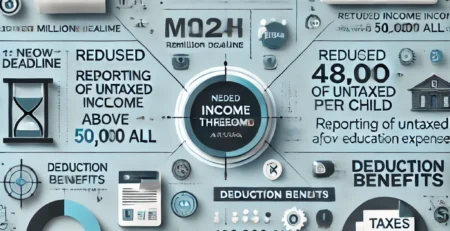Tax rates in Albania, Kosovo, Western Balkans
In 2018, the Western Balkans are characterized by fiscal policies that are focused on the stability of the tax rate, the slight decrease in the rate of social contributions, and its rise to VAT in the case of Montenegro. The WB countries have not had noticeable fiscal policy developments about the reform framework of the tax system. The fiscal policy pursued has aimed at fiscal consolidation and consolidation as well as some minor changes aimed at harmonizing social policies or facilitating certain segments of national economy activities.
The changes that occurred in 2018 have reflected the increase of the standard VAT rate in Montenegro (up to 21%), as well as in Albania are some updates regarding to CIT standard rate or introduction of reduced VAT rate for advertising service for electronic media, supply of books, and reduction of VAT rate for electric buses. The approved changes aim to increase budget revenues with the objective not to completely affect budget revenues and fiscal stability.
The average standard VAT rate for 2018 for the Balkans is 17% in Bosnia and Herzegovina, 18% in Kosovo and North Macedonia, 20% in Serbia and Albania, 21% in Montenegro and 25% in Croatia. Kosovo, North Macedonia and Bosnia and Herzegovina apply standard VAT rates below the region’s average (19.9%).
All other Balkan countries, except to Bosnia and Herzegovina, also apply reduced VAT rates, mainly for basic consumption goods, health, energy supply, urban transportation, education, books, magazines and cultural and sporting activities (see the following chart).
Under the legal changes process for VAT in 2018, Montenegro has begun implementing the standard rate of 21%, which is above the average of the region. Kosovo has started to implement a reduced VAT rate at the end of 2015, and has increased the standard rate by 2%, for the purpose of maintaining fiscal stability of the budget. Montenegro and Serbia adopted a reduced VAT rate of 2016, respectively by 7% and 10%. Albania and Serbia have been applying a standard VAT rate of 20% for several years.
In 2018, besides Albania, there are no changes in the profit tax rate in the Western Balkans. In view of the corporate tax law, Croatia, Albania and Serbia apply tax rates above the average of the region (12.5%). Montenegro, Kosovo, North Macedonia, Bosnia and Herzegovina apply tax rates below the average of the region. Croatia applies highest profit tax rate at level of 18%.
The lowest rate continues to be applied from Montenegro, since 2005 at a level of 9% of commercial profit. Albania maintains a tax rate (15%), which is above the average of the region. While Kosovo maintains a 10% low profit tax rate, which is applied in several countries (N. Macedonia, Bosnia) as part of a flat tax policy (with a comprehensive tax rate).
In 2018, in Albania, a reduced profit tax rate of 5 per cent was introduced for legal entities, which exercise activity for production or software development, while applying a reduced rate (5%) for the Small and medium sized businesses, with a turnover up to 14 million ALL per year.
All Western Balkan countries apply a steady rate of profit tax, except for Albania.
The Balkan average corporate tax rate, since 2017 was down by 4% in Croatia.
Western Balkans average tax rate on personal income tax / wages[1] is at level of 16.9%.
- Croatia (36%), Albania (23%) and Serbia (20%) apply personal tax rates above this average;
- Kosovo (10%), Bosnia and Herzegovina (10%), North Macedonia (10%), Montenegro (9%) apply tax rates below this average.
The progressive tax on wages (salaries) is implemented by Croatia (two tax rates), Albania (two tax levels), and Serbia (two levels of taxation).
Meanwhile, for individual income taxed at source, each country applies scalable progressive policies according to personal income segments.
Tax rates for withholding taxes are:
- below the Balkan average, they are 5 countries; Montenegro (flat tax 9% for withholding tax), Kosovo (flat tax 10%, dividend is not taxed), North Macedonia (flat tax 10% for all personal incomes), Bosnia and Herzegovina (flat tax 10%, where only the dividend is taxed at 5%);
- on the Balkan average, they are 5 countries; Albania (flat tax 15% on withholding taxes), Serbia (progressive tax rate 20% on other incomes), Croatia (flat tax 15% for withholding tax on bank interest and property tax and 12% for dividend tax).
Albania, Croatia, and partly Montenegro and Serbia, North Macedonia (from 2019) apply a progressive tax system on personal income ta, which still carries on the sharp and still unsettled prophecy about solutions to the expansion of the base of capital and labor taxes.
The average total rate of social contributions[2] in the Balkans for 2018-2019 is at 30.9%. Below this average rate are ranked 3 sites[3]:
- Kosovo (10%), North Macedonia (27%), Albania (27.9%), Bosnia – Republica Srpska (23%);
On this average are ranked 4 countries:
- Croatia (37.2%), Montenegro (34.3%), Bosnia – Federation (41.5%), Serbia (37.8%).
The countries with high tax rates have a significant difference ranging from 7% to 14%. Meanwhile, based on pension retirement policies, transfers to vulnerable groups, as well as vocational education and staffing capacity increase are emerging as the need to cope with the increased competitiveness of human capacities as well as the economy.
It is necessary that the policy of the burden of contributions be revised to narrow this gap in Kosovo, North Macedonia and Albania. Lower rates of contribution rates threaten in the medium to long term the implementation of the current schemes, driven only by the fact of increasing the retirement age for retirement benefits.
The diagram below shows that even in 2019 the main share of the fiscal burden in Western Balkan countries will be kept from consumption taxes and fewer burdens will be left on direct taxes. Meanwhile, the policy on social funds is seen to have not been intended to be competitive, while maintaining the same burden as the previous year.
In the context of implementation of tax rates, if we analyze in their entirety these rates with the level of fiscal burden, it is seen that indirect tax administration capacities are below the tax burden level in each WB country. But even for direct taxes, administration capacities remain unfulfilled. This confrontation requires a review of the tax-rate adjustment model with capacity strengthening, adaptation to the economic and social environment of taxpayers.
From a practice point of view, there is no doubt that fiscal policy affects economic business choices. If tax cuts are not harmonized by considering the expansion of tax bases, then a budgetary situation is created that adversely affects fiscal consolidation, as well as the strengthening of volunteering in paying taxes and increasing fiscal culture.
From the horizontal comparison of the social contribution rates, there is a regional tendency to keep them at the same levels as year before. The non-change of social contribution rates shows that politics is relaxing the labor market and is aiming to help budgetary policies, some countries such as Albania, Kosovo and perhaps even North Macedonia need increased contributions to some sharp social policies in terms of employment training policies and for some categories such as: disabled people, young people entering the labor market as well as the poor people.
If we look at the fiscal fulfillment of fiscal policy objectives, it is proven that current tax rates can not meet fiscal policy in any of the Western Balkan countries. If we look deeper, it is concluded that some countries have a low fiscal burden (Albania, Kosovo, N. Macedonia). Reducing a tax rate of a certain tax is not a solution to citizens’ demands and budget. A complex tax system, which in recent years is being implemented in an economy that needs to be competitive in the regional market, needs a harmonization of fiscal policy with tax rates. But, on the other hand, the complexity of the fiscal system increases the difficulty of voluntary cooperation with the law by small and medium taxpayers, which are most of the tax base.
Although recent studies by various organizations and researchers confirm that changes in tax rates on consumption and capital are less impacting on the economy than changes in tax rates on individuals and labor, it is worth pointing out that shifting the fiscal burden from consumption and capitals in the individual and work is a difficult task for any government.
However, fiscal policy related to low capital tax rates has not had the expected impact on investment absorption and consequently on economic growth. This shows that fiscal policy is a strong stimulus / inhibitory instrument for the movement of capital and consumption. But it cannot be skipped the fact that the budget needs enough money to develop the policies to increase the labor market through incentives and capacity building, but also through the development of infrastructure and the creation of the environment for the introduction of contemporary technology.
For example, let’s have a look at the case of Montenegro and North Macedonia, which have applied the lowest tax rates on capital in the Western Balkans.
GDP in Montenegro for the period from 2008 to 2018 has not marked a steady growth, but has marked a decrease during this time frame. Likewise, this has happened with N. Macedonia, which is held for the lowest tax rates, even at the European level. GDP of this country has remained at about 10 billion Euros, with a decrease in national added value.
The application of a comprehensive reform policy should be based on a level of administration and strong capacities. Improving the tax system should also address both the tax rate policy and the strengthening of the administration, always being considered as a necessary condition for the functioning of the fiscal system development in accordance with the objectives for economic development.
[1] including withholding taxes, such as: dividend tax, bank interest tax and property income tax
[2] for employer and employee
[3] Republika Srpska is included as a federation (part of the country) and not at the state level




Leave a Reply
You must be logged in to post a comment.